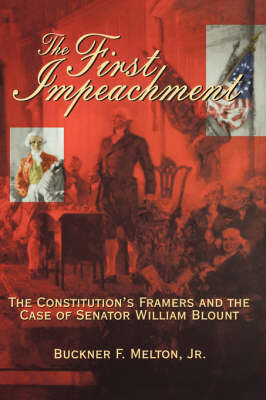Six years before Thomas Jefferson hired Meriwether Lewis to open the West, the Southwest Territory was seen by many as part of the natural westward expansion of the United States. William Blount (1749-1800), a land speculator and national politician, served as governor of the Southwest Territory 1790-96. In 1796 he became one of Tennessee's first two U.S. senators. In 1796 and 1797 he became involved in a frontier plot to invade Spanish-held Louisiana and Florida, with British backing, in order to facilitate economic development in the western United States and to increase his land sales there. When the federal government discovered Blount's involvement in the conspiracy in mid-1797, the House of Representatives impeached him, the first time it even exercised this power, and the Senate simultaneously expelled him. Impeachment proceedings continued until early 1799, when the Senate dismissed the impeachment, finding that senators are not subject to the process. During this time many members of the 1787 Constitutional Convention and their close associates served in Congress, and their application of the impeachment power in the Blount case thus helps to reveal their original intent in regard to the impeachment power. Original intent, while not the exclusive rule of constitutional interpretation, is no less valid than rules focusing upon the Constitution's wording. The congressional record of Blount's impeachment reveals that the legislators involved in the episode viewed the actual impeachment or accusation to be a spontaneous product of emotion, that the process as a whole is not criminal in nature, that Bill of Rights criminal procedural guaranties constitutionally attach not ofnecessity but only at Congress's discretion, and that substantive limits to the impeachment power exist.
- ISBN13 9780865545977
- Publish Date 1 April 1999
- Publish Status Out of Stock
- Publish Country US
- Imprint Mercer University Press
- Format Hardcover
- Pages 344
- Language English
